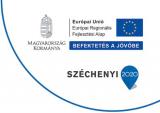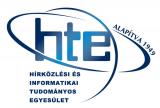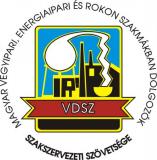About NJSZT
The John von Neumann Computer Society (Hungarian name: Neumann János Számítógéptudományi Társaság, abbreviation: NJSZT) looks back to a very long history. It was founded in 1968 as the first professional computer science organisation in Hungary, pioneering this technology that was emerging at that time. Today it is gathering more than 50 professional organisations and cca. 2000 members.
Mission statement
Our mission statement “to act a GPS of the digital world” gives guidance to everybody using information technology today, in the dynamically developing, technology-driven world of the 21st century. NJSZT plays a significant role in promoting digital culture, fostering digital literacy and acting as a catalyst for the ICT profession and the digital world. We are a kind of bridge between ICT professionals and the everyday people using any kind of digital solution. Therefore, NJSZT’s network is very broad, starting from pupils who are going to take an exam like DigComp-ICDL, through teachers and instructors to leading industry experts.
Major activities
NJSZT has four major activities:
- fostering digital competency
- maintaining professional groups and networking
- IT related competitions and talent management
- preserving ICT history
ICDL and DigComp
Since 1997 NJSZT has been in charge of coordinating the ICDL program in Hungary (previously ECDL) with a network of 200 educational and exam centres countrywide. To date, more than 500,000 people have joined the program in Hungary, gaining basic computer proficiency so crucial in today’s labour market. Last year we successfully transformed the exam delivery from contact type where pupils showed up in person to a non-contact manner, managed and controlled remotely by the test managers. It also means that the tests are evaluated automatically by a cloud-based system which was a mutual development of Sophia Testing and Neumann Society.
Beside ICDL, we are active in levering digital competencies for any profession, with special focus on non-technology workers who would meet any IT solution in their jobs.
Professional communities
As a professional organisation, NJSZT is an influential body of the Hungarian IT-sector, hosting successful events and exhibitions, publishing books and providing counselling. NJSZT is also active in areas affecting the future, such as robotics and artificial intelligence (AI). Based on our extensive network, we support quite many initiatives focusing on emerging technologies.
Our communities without claiming completeness:
- Artificial Intelligence
- Bio-medical Informatics
- Informatics History Forum (iTF)
- Hungarian Fuzzy Association
- Hungarian Association for Image Processing and Pattern Recognition
- Multimedia in Education
- High Performance Computing
- Professional Community for Supporting People with Disabilities
- Public Education Special Interest Group
- Robotics Division
- Section of Talent Care
- Web Application Development Division
Talent management
The NJSZT has an extensive and systematically structured talent management network and competition system.
It organises the Bebras competition about computational thinking for all, where ~35,000 students taking part each year.
It offers graphical programming exercises for secondary school students in online and textbook-based learning materials, to motivate them to learn programming through nice pictures drawn by code. Students can test their skills in three rounds of competition (School, county and national), in four age groups (grade 3-4, 5-6, 7-8, 9-12).
In competitive programming, mainly high school students can take part in contest (3 age groups, school, county and national rounds). Preparatory camps are organised for the best students, and they are selected for each Olympiad through a multi-round selection process. We offer an online platform to exercise with more than 2000 tasks. Our team organise online practice contest and online lessons.
The members of the Neumann Society act as team leaders on EGOI (European Girl Olympiads in Informatics), eJOI (European Junior Olympiads in Informatics), CEOI (Central European Olympiads in Informatics), and IOI (International Olympiads in Informatics).
We organised CEOI five times: 1995 - Szeged, 2001 - Zalaegerszeg, 2005 - Sárospatak, 2012 - Tata, 2020 - Nagykanizsa, and IOI in 1996 - Veszprém.
In addition, our regional organisations participate in regional programming competitions, like Prograce, Izsák Competition. For those who will use the office applications, we offer a competition in three rounds and two categories.
In Nyíregyháza the Hungarian Junior Robot Cup is our main activity, while in Szekszárd the Neumann Application and Game Development Contest takes part every year.
Protection of IT heritage
Located in Szeged, at the Albert Szent-Györgyi Agora, NJSZT operates one of the world’s ten most influential IT history museums. The exhibition lets visitors travel through time in technology: they can see computers both from the Cold War era’s former Western and Eastern Blocks. Some of these machines occupy an entire room, while others were specifically designed for home use. Also, ICT and robotics camps and preparatory training for student Olympiads are often being held in the museum.
As can be seen, NJSZT looks back to a very long history. Our society, however, is playing an important role in today’s fast changing world. Promoting the establishment of digital equality, spreading computer literacy and internet culture, improving IT culture, professionalism, the protection of values and talent development to ensure the NJSZT still considers new generations of skilled professionals are tasks of paramount importance. We keep on looking for new opportunities, initiatives and every possible play to keep our place in the Hungarian IT world.
Bodies of the Society
The governing Board of the Society consists of the President, five Vice-Presidents, Supervisory Board, the Managing Director, the Past-President and the Honorary Presidents.
Daily business of the Society is run by the Managing Director.





























